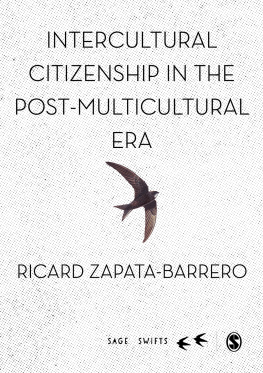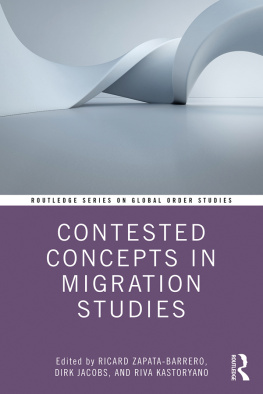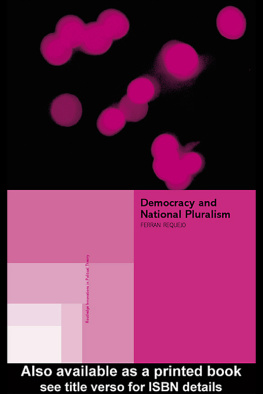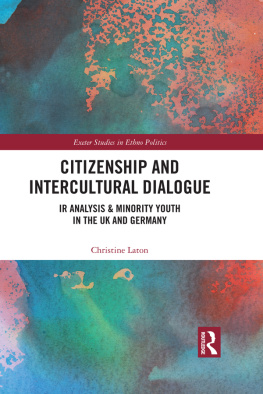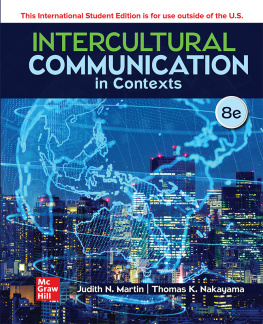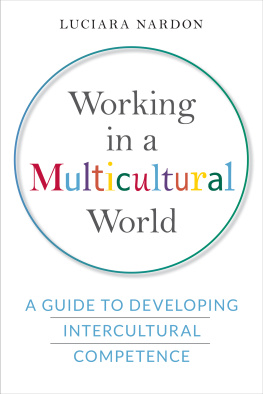SAGE Publications Ltd
1 Olivers Yard
55 City Road
London EC1Y 1SP
SAGE Publications Inc.
2455 Teller Road
Thousand Oaks, California 91320
SAGE Publications India Pvt Ltd
B 1/I 1 Mohan Cooperative Industrial Area
Mathura Road
New Delhi 110 044
SAGE Publications Asia-Pacific Pte Ltd
3 Church Street
#10-04 Samsung Hub
Singapore 049483
Ricard Zapata-Barrero 2019
First published 2019
Apart from any fair dealing for the purposes of research or private study, or criticism or review, as permitted under the Copyright, Designs and Patents Act, 1988, this publication may be reproduced, stored or transmitted in any form, or by any means, only with the prior permission in writing of the publishers, or in the case of reprographic reproduction, in accordance with the terms of licences issued by the Copyright Licensing Agency. Enquiries concerning reproduction outside those terms should be sent to the publishers.
Library of Congress Control Number: 2019938908
British Library Cataloguing in Publication data
A catalogue record for this book is available from the British Library
ISBN 978-1-5264-7705-7
WEB PDF 978-1-5264-9849-6
Editor: John Nightingale
Assistant editor: Eve Williams
Production editor: Martin Fox
Copyeditor: Mary Dalton
Proofreader: Leigh C. Smithson
Marketing manager: Susheel Gokarakonda
Cover design: Wendy Scott
Typeset by: C&M Digitals (P) Ltd, Chennai, India
Printed in the UK
At SAGE we take sustainability seriously. Most of our products are printed in the UK using responsibly sourced papers and boards. When we print overseas we ensure sustainable papers are used as measured by the PREPS grading system. We undertake an annual audit to monitor our sustainability.
Introduction: Citizenship and diversity nexus revisted The intercultural citizenship focus
In the globalized and interconnected world, the movement of people between countries is becoming the norm. All societies consist and have always consisted of a web of diverse influences, interactions and exchanges, a situation that is becoming more complex as globalization takes hold. The increasingly diverse population (of cultures, nationalities, languages, religions, etc.) that stands in our cities is then a direct consequence of human mobility that brings with it globalization. While a strong growth process throws up new challenges for converging countries, there is ample evidence that public policies can make a difference. Public institutions, in whatever level of government, have become aware that diversity cannot be left alone. They then assume that this diversification must be managed, because without intervention it tends to generate political isolation, social division, territorial segregation, daily xenophobia and racism, and even ideological extremism. The key question that frames these public debates is often focused on how to live together, stressing the sociological dimension that diversity creates. I would suggest also underlining the political dimension, which stresses the need of governments to find appropriate tools and approaches to manage diversity. Following Schuck (2006: 67), I will describe diversity management as how government self-consciously approaches diversity, so long as one bears in mind that manage includes both decisions to make diversity a subject of political and legal intervention and decisions to leave diversity to informal, unregulated choices.
In other words, the premise of this book, regarding diversity governance, is that there is no other way to govern it than through social engineering. Diversity is a mainstream dynamic of liberal democratic societies, and to formulate arguments against diversity is as unrealistic as to be against globalization. This belongs to our historical course of action, and what is needed is to discuss how to govern it in order that it does not contradict the basic democratic liberal values of human rights, equality, fundamental freedoms, and social values of solidarity, cohesion and stability; the reason being that dynamics means that diversity has a transformative effect into social and political spheres, and involves increasing complexity and multiple identities. These differentiation categories may explain discriminatory and unequal, precarious and unbalanced power situations. Policies and politics may also react and/or influence these dynamics through narratives and collective actions engaging stakeholders and other public/private networks of actors.
While this policy awareness is key to recognizing the unavoidability of diversity dynamics in our societies, the problem remains that this diversity-recognition still faces many difficulties to be fully permeated within the social and political structures although, and most importantly, it meets many difficulties in attempting to penetrate the same peoples mindsets.
The debate about how to govern diversity, how to live together, will be done following a citizenship focus. This is not surprising. The diversity/citizenship nexus has three main features following the three main dimensions of citizenship. On the one hand, the liberal dimension of citizenship tells us that it is a way to focus the debate around what is seen as the main challenge liberal democracies must face today: the spread of the principle of equality of rights for all in the new particular settings of complex diversity and in the framework of human rights. That is, whatever category of diversity differentiates people (be it cultural, race, religion, nationality), they must all have the same treatment and opportunities. On the other hand, the communitarian dimension focuses on citizenship as a community-building process, in the sense that it is through citizenship that we channel the need to ensure a common public identity, and keep a minimum sense of belonging, into a society that is characterized by being diverse. This membership dimension of citizenship is also completed with the republican dimension, which puts emphasis on participation, civic duties and common practices in the public realm, a shared public culture. Equal Rights, community-building and public practice are then the three main drivers that will feature the citizenship focus.
This citizenship focus will be combined with the diversity category. As a direct product of global human movement, the concept of diversity that I will use will be directly related to the differences migrants bring to us and thus make us aware of our taken-for-granted lifestyles and worldviews. Even if we do not adhere to the mainstream religion of Christianity, we celebrate Christmas and Easter, and most of our festivities have a religious background. This mirror effect that the diversity dynamics provokes is what falls within the diversity category, but also when these differences become social and political categories, basically cultural, ethnic, racial, national, religious beliefs and even language differences. Of course, this is not an argument to deny the pertinence of having an expansive view of diversity (Vertovec, 2015: 2), which also includes other categories of social difference such as gender, social class, sexual orientation, physical ability, mental ability, age, education, etc. This involves an incorporation of the analysis of diversity as an intersectional-based approach, or what has been popularized as super-diversity (Vertovec, 2007). For instance, considering that inequalities and discriminations never have one root-cause but are always the combination of several interlinked categories of diversity. From this perspective there is an obvious vital link between diversity and citizenship, in the sense that the social differentiations that are produced become the main factors of discrimination and inequality of rights, disperse the sense of belonging to the same community, and can desegregate the public realm and sphere of civic behaviour and participation. In some way the categories of analysis of diversity and citizenship help us to keep the critical focus we would like to follow, and it is our particular way of generating awareness.




